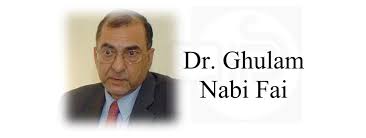 In August 2019, the Indian government made a big and controversial decision to remove occupied Jammu and Kashmir’s special status. This change split the state into two union territories and was followed by a strict lockdown, a communication blackout, and the arrest of many political leaders and activists. These harsh actions have had deep and lasting psychological effects on the people of Jammu and Kashmir, adding to an already tense and traumatic situation.
In August 2019, the Indian government made a big and controversial decision to remove occupied Jammu and Kashmir’s special status. This change split the state into two union territories and was followed by a strict lockdown, a communication blackout, and the arrest of many political leaders and activists. These harsh actions have had deep and lasting psychological effects on the people of Jammu and Kashmir, adding to an already tense and traumatic situation.
Removing Article 370 wasn’t just a political move; it significantly changed how the region is governed. The severe crackdown that followed, including curfews and internet shutdowns, has created an atmosphere of fear and oppression. The constant presence of military forces and the frequent use of harsh laws, like the Armed Forces (Special Powers) Act (AFSPA) and the Public Safety Act (PSA), have left the people feeling trapped and powerless. These laws allow security forces to arrest people without a warrant and detain them for long periods without trial, leading to widespread fear and mistrust. The constant threat of violence, arbitrary detentions, and the lack of basic freedoms have taken a heavy toll on the mental health of the people in Jammu and Kashmir. Reports from international human rights organizations, such as Amnesty International and Human Rights Watch, highlight cases of torture, extrajudicial killings, and sexual violence by security forces. Civilians, including women and children, often bear the brunt of military operations, resulting in psychological trauma, depression, and anxiety.
These issues have triggered a new wave of mental health problems in the IIOJK. On average, an adult living in the valley has witnessed or experienced more than seven traumatic events during their lifetime. Among the traumatized population of Kashmir, 37% of adult males and 50% of females suffer from probable depression, 21% of males and 36% of females suffer from a probable anxiety-related disorder, and 18% of men and 22% of women suffer from probable PTSD (Post-Traumatic Stress Disorder). About 45% of adults in the Kashmir Valley have significant symptoms of mental distress. Approximately 1.6 million adults (41%) in the valley are living with significant symptoms of depression, with 415,000 (10%) meeting all the diagnostic criteria for severe depression. An estimated 1 million adults (26%) in the valley are living with significant symptoms of an anxiety-related disorder.
For decades, the people of Jammu and Kashmir have lived in a state of uncertainty and conflict. The recent actions by the Indian government have only deepened their sense of isolation and resentment. The UN and the international community should take note and urge India to halt these actions and grant the people of IIOJK the right of self-determination. India must acknowledge the reality that Kashmiris do not wish to remain part of India, and India’s ongoing actions to integrate IIOJK further exacerbate Kashmiri resentment.
Aneeqa Aamir is pursuing a Bachelor of IR from the International Islamic University, Islamabad and currently, she is intern at Kashmir Institute of International Relations.








